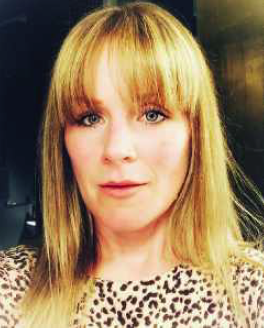Two or three prospective new clients call me each week. Once we’ve spoken on the phone we’ll meet up, and that’s when they notice my disability for the first time. I can feel them questioning my ability over my disability and I feel I need to win them over, ”Coral-Ann Mills (pictured) told PQ.
After suffering a stroke at the young age of 26 Coral-Ann Mills, who runs her own bookkeeping and accountancy business in Bedfordshire, now has what she calls her bionic leg. “Some clients are intrigued by it and I have to say, ‘alright I’ll give you a demo, but then we really need to talk about your accounts!’ Others, you can tell they want to ask questions but don’t. People have a perception of how a disability affects your work and I’m always second-guessing what people expect of me.”
When Coral-Ann had her son Sebastian four years ago she made sure all of her client’s tax returns were submitted first, and that didn’t lose any clients. A series of modifications, elaborate work-arounds and a steep learning curve enabled Coral-Ann to care for her son.
“Sebastian’s baby grows all had my teeth marks in them because that’s how I’d pick him up. He quickly learnt to be still for me but he’d always wriggle around with his dad.”
Coral-Ann says she ‘does everything’ for her clients except for the final step of submitting CT600s, which she passes on to an accountant. She says she’s thinking about taking ICB’s standalone Corporation Tax and FRS Modules when her son goes to school in September.
“I used to work through the night to build the foundations of my business. I wanted to grow it, to focus on myself and what I wanted to be. Now I’m in a position where I can support myself and my son financially if, God forbid, anything happened to his dad. I learnt the hard way what it’s like to literally not be able to stand on my own two feet and I came out fighting on the other side.
“You’ve got to be a fighter. There’s always someone worse off than you and you can’t give up. Don’t believe anyone else’s opinions of you; the only person you can control is yourself. Some days I just want to stay in bed because I’m in pain. But I know it’s not going to achieve anything.”
Coral-Ann credits social media with raising awareness of disabilities and mental health issues. “There used to be this idea that you might struggle one day with how you’re feeling, but the next day you’d wake up and be fine. But people are speaking out about these issues now.
“After I had my stroke I didn’t even know my name. I couldn’t sit up or feed myself and, to be honest, if I didn’t have my partner and others around me practically supporting my every move, I probably wouldn’t be here. I had to find myself again, and bookkeeping helped me do that, by giving me a sense of purpose and that you truly get out of life what you put in.”




